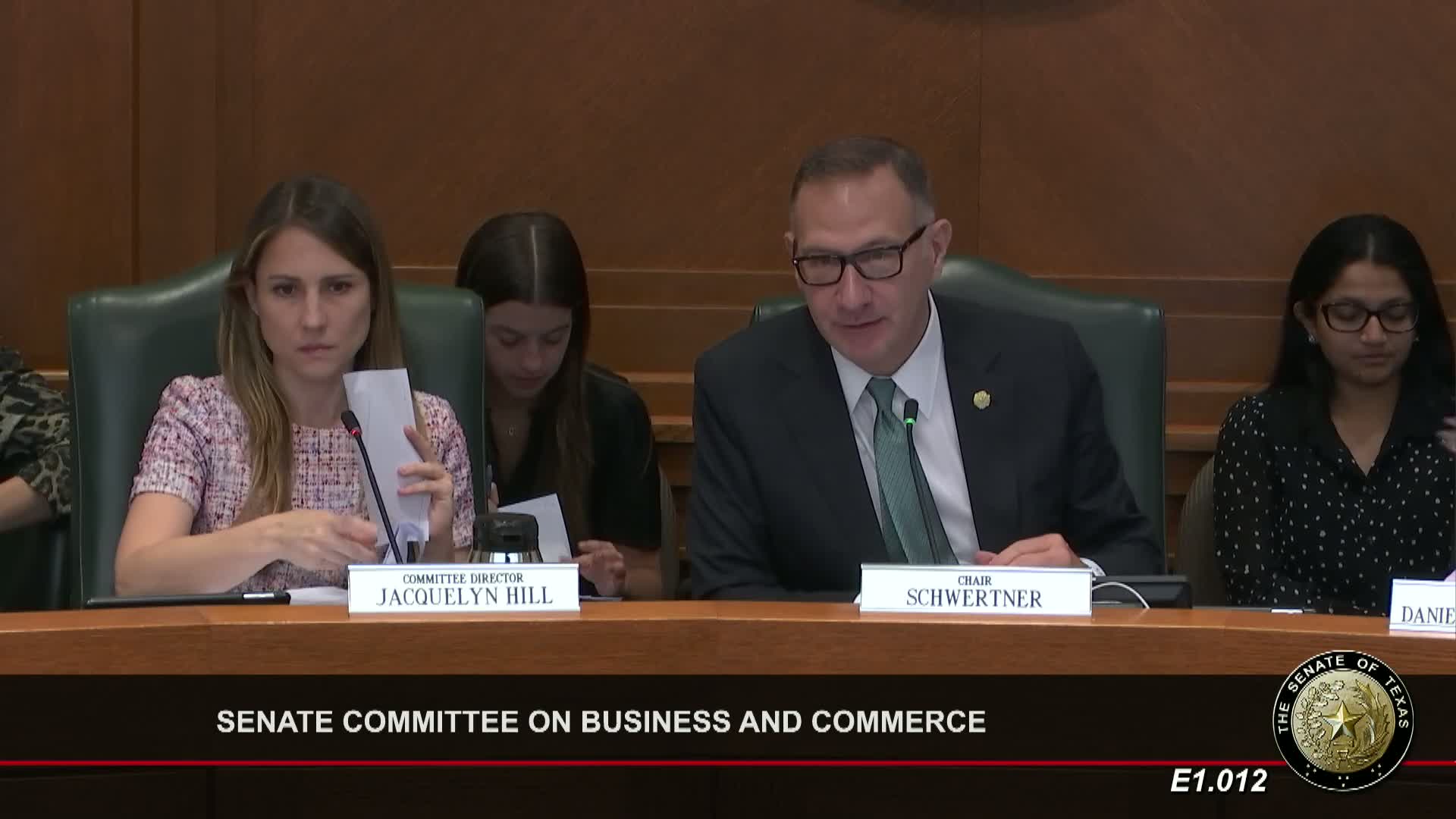Bill would create expedited administrative remedy for fraudulent UCC filings; industry and lenders discussed safeguards
Get AI-powered insights, summaries, and transcripts
Subscribe
Summary
Senate Bill 22 21 would expand remedies for victims of fraudulent Uniform Commercial Code financing-statement filings by allowing an affidavit-based termination process at the secretary of state, statutory damages increases and due-process protections for secured parties.
Senator Parker introduced Senate Bill 22 21, a measure to expand remedies for victims of fraudulent or forged financing statements under the Uniform Commercial Code. The committee considered a substitute that incorporated secretary-of-state language.
Sponsor explanation: The bill raises statutory-minimum damages for wrongful filings and clarifies that anyone harmed by a fraudulent filing — not just property owners — can seek restitution. It permits an injured person to file an affidavit of impermissibility with the secretary of state asking for a prompt administrative termination statement; the secretary-of-state office would notify secured parties and the agency would file a termination statement quickly while preserving secured parties’ due-process rights to contest an improper termination via expedited court procedures. The substitute exempts federally or state-regulated financial institutions from the affidavit process to reduce inappropriate challenges to legitimate filings and authorizes a filing fee to cover administrative costs.
Industry testimony included Ryan Fowler of GM Financial (corporate counsel) who supported the bill’s goal of reducing costly, time-consuming litigation for victims of fraudulent filings and said the current sole remedy — bringing suit — often costs $5,000–$10,000 and takes months. The secretary-of-state’s office was present as a resource and the committee adopted a committee substitute to reflect administration input.
The committee left the bill pending for further consideration.
Ending: Committee took testimony from creditors and consumer advocates, discussed due-process safeguards and administrative fee structures, and left SB 22 21 pending for subsequent drafting.
